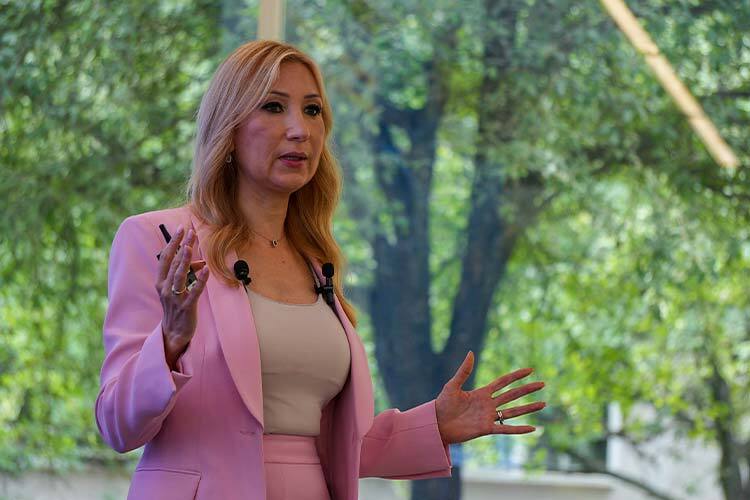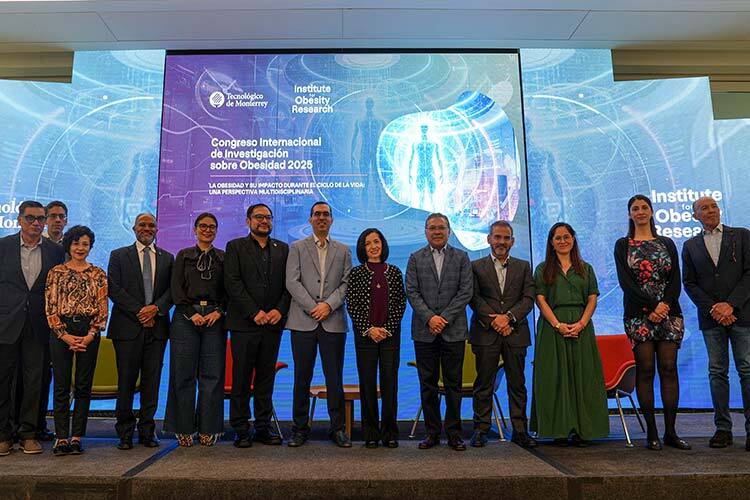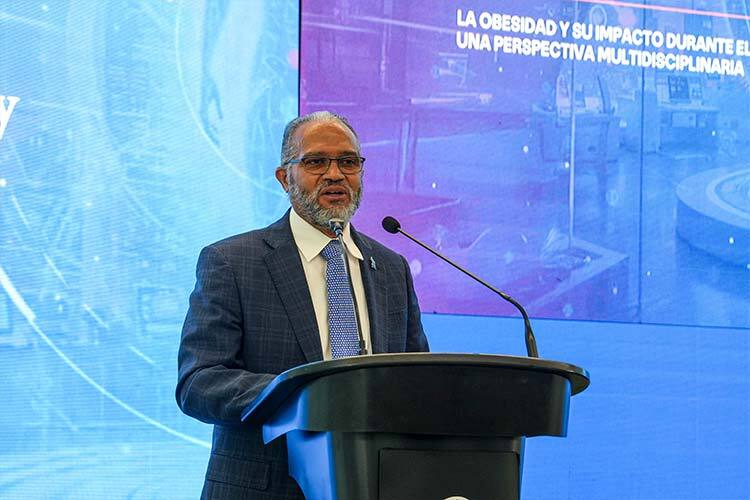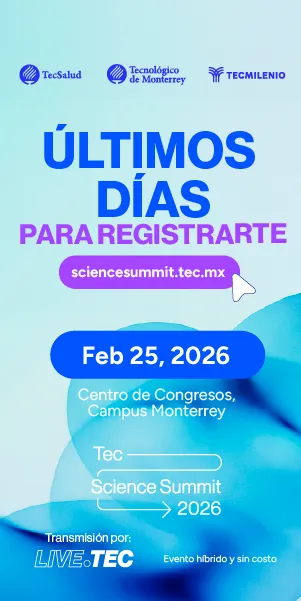Obesity must be recognized as a chronic, multifactorial phenomenon that demands integrated responses across science, technology, nutrition, urban environments, education, psychology, and public policy, said Juan Pablo Murra, rector of Tec de Monterrey, during his opening remarks at the 2025 International Congress on Obesity Research.
“It’s crucial to build solutions through interdisciplinary collaboration, always with an ethical, humane, and evidence-based approach,” he added.
The fourth edition of this congress, organized by Tec’s Institute for Obesity Research (IOR), is being held under the theme Obesity and Its Impact Across the Life Cycle: A Multidisciplinary Perspective. The event aims to bring together experts from various fields to examine how this condition affects individuals at different stages of life.
Multidisciplinary Research to Tackle Obesity
In Mexico, 37.1% of the adult population is living with obesity (41% of women and 33% of men). Moreover, over the past two decades, the prevalence of this condition has surged by nearly 58%, shared Feniosky Peña-Mora, Executive Vice President for Research at Tec de Monterrey, during the opening of the Congress.
He emphasized that obesity is not a challenge that can be fully understood from a single perspective; rather, it is a complex phenomenon that impacts multiple stages of life and touches on various dimensions of human existence, ranging from biology to the social sphere.
For example, he explained that at the Institute for Obesity Research (IOR), five research units address experimental medicine, healthy foods, integrative biology, bioengineering, and public policy.
“We are driving forward projects aimed at improving the quality of life for girls, boys, women, men, and older adults. This is possible thanks to the collaboration of researchers, students, and strategic partners who have turned science into a tool for transforming our realities—and in this case, our health conditions,” Peña-Mora highlighted.
Some of the Institute’s projects include developing devices for the early diagnosis of childhood obesity, islet transplantation to treat diabetes, genetic studies of the Mexican population, and initiatives to make treatments more accessible for addressing this condition.

Public Policy to Address Obesity
Obesity represents a serious and growing public health issue. It begins at an early age, affects both children and adults, and is linked to chronic and cardiovascular diseases that can be fatal, said Alma Rosa Marroquín, Secretary of Health of Nuevo León. For instance, data from the 2022–2024 Health and Nutrition Survey revealed a rise in the prevalence of this condition among children in the state, with four out of every ten boys found to be overweight. Among adults aged 40 to 49, abdominal obesity was present in 92.8% of cases.
“That means it affects nine out of ten young adults who are in the prime of their working lives. This will have consequences across many areas, from personal decision-making to quality of life and even their contributions to society,” she said.
Marroquín pointed out that this issue stems from an obesogenic environment shaped by social, genetic, and environmental factors, as well as unhealthy eating habits. Tackling it requires strategic public policies aimed at curbing overweight and obesity—such as the General Law on Adequate and Sustainable Nutrition, which promotes the production and consumption of nutritious foods, and the Live Healthy, Live Happy program, which focuses on school-based interventions. These include nutrition education and awareness campaigns, health assessments by medical personnel, and regulations targeting the food environment.

2025 International Congress on Obesity Research
The new definition of clinical obesity, along with other topics related to this condition, is part of the event’s agenda, where projects underway at the Institute are also showcased, said Marco Rito, Director of the IOR.
“The Congress gives us a great opportunity to highlight the kinds of research we’re conducting—through short talks and poster sessions—not only within the Institute but also in collaboration with colleagues from institutions outside of Tec,” Rito said.
In addition to the redefinition of clinical obesity, the program includes discussions on challenges in implementing the new General Law on Adequate and Sustainable Nutrition, B-group vitamins, the epigenome and fetal programming, cheminformatics for drug development, and nanophotonics-based biosensors for healthcare, among other topics.
The event features keynote lectures, panel discussions, and presentation sessions by Institute researchers. It is being held at Tec’s Monterrey campus and is also available for remote participation.
Were you interested in this story? Do you want to publish it? Contact our content editor to learn more about marianaleonm@tec.mx

















